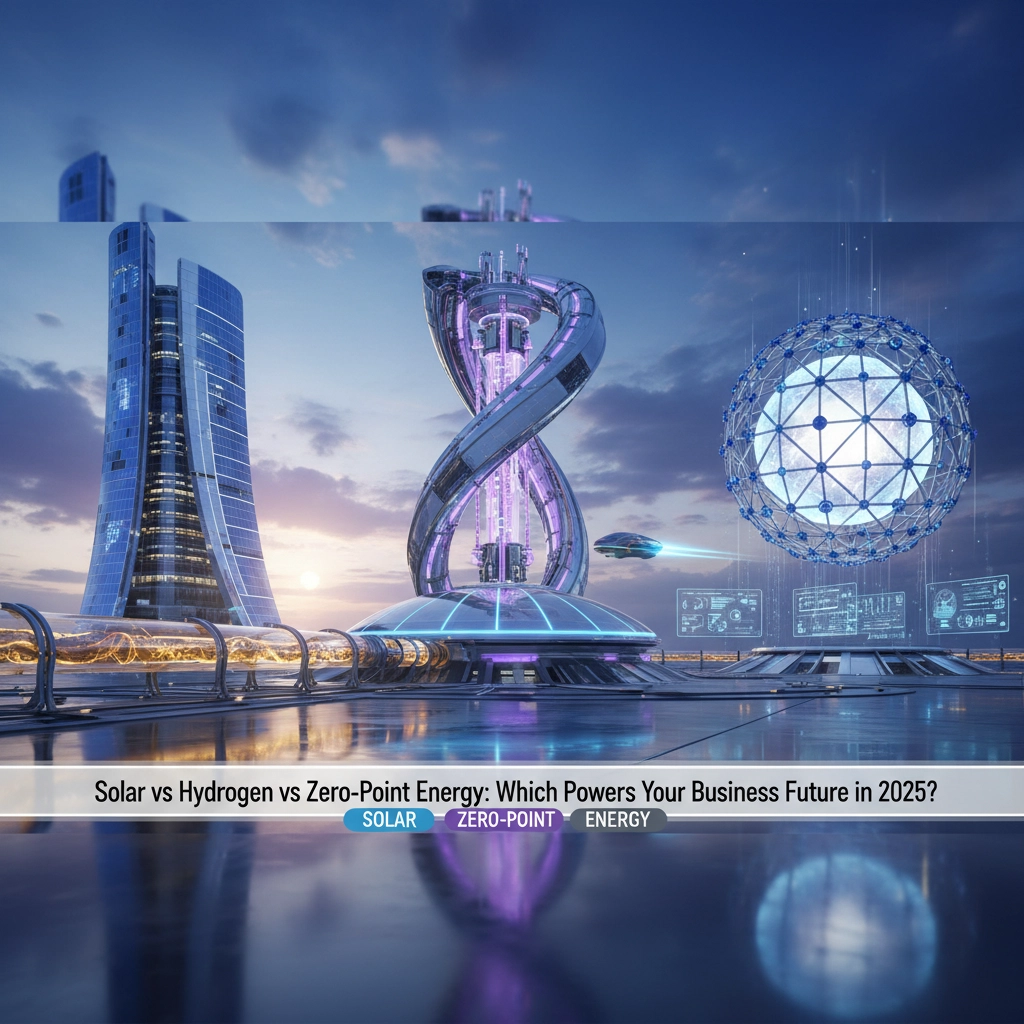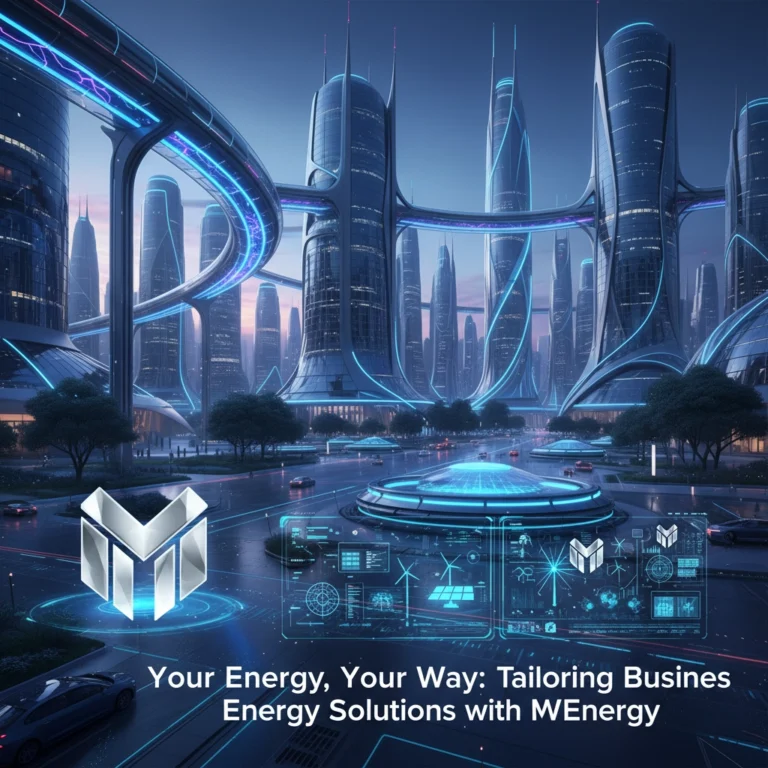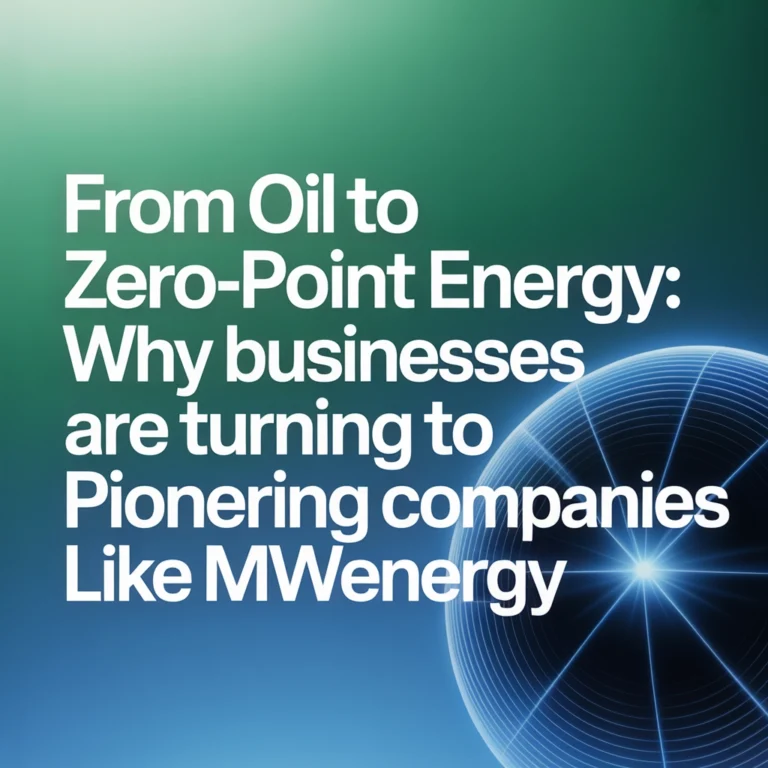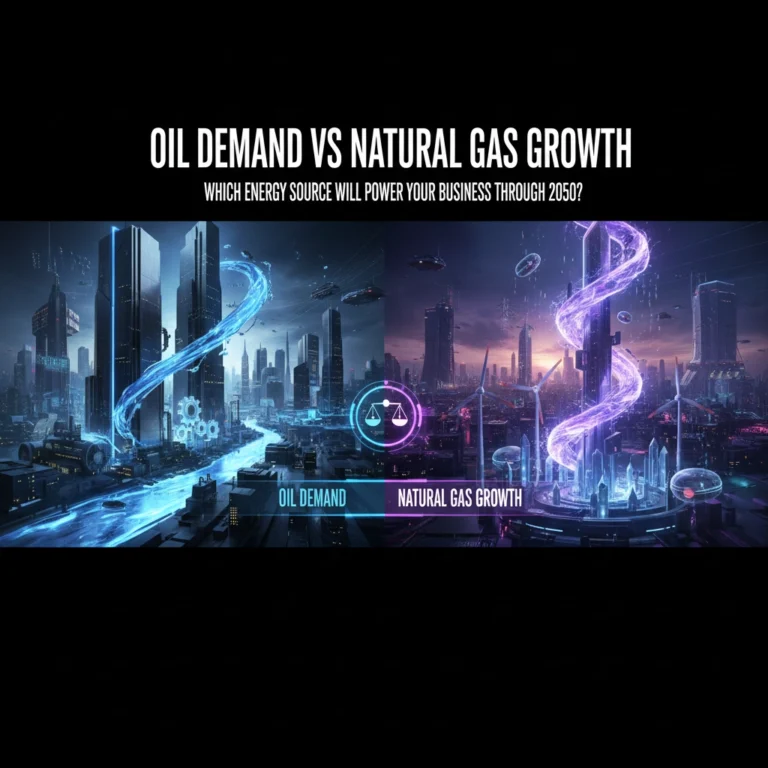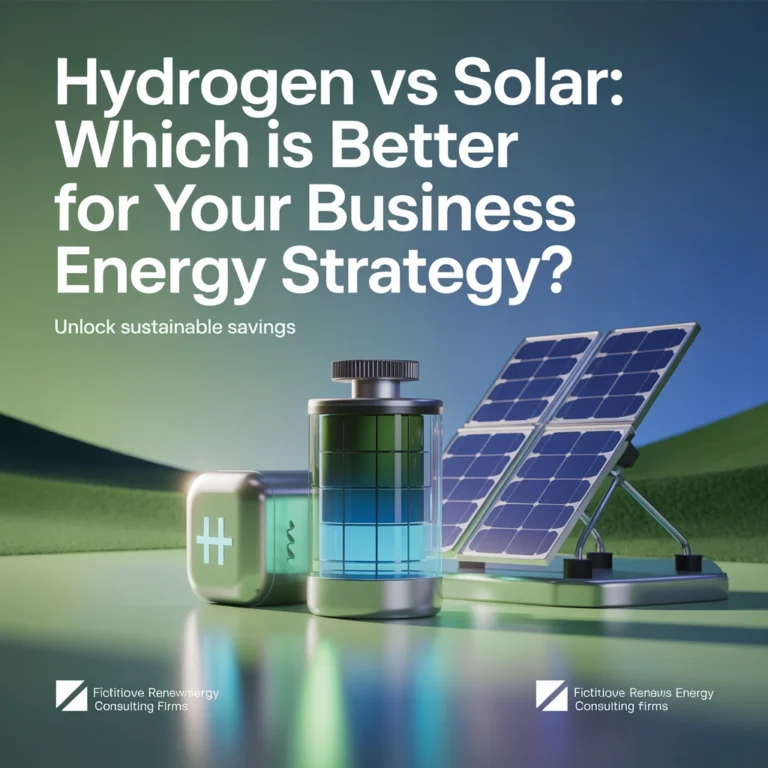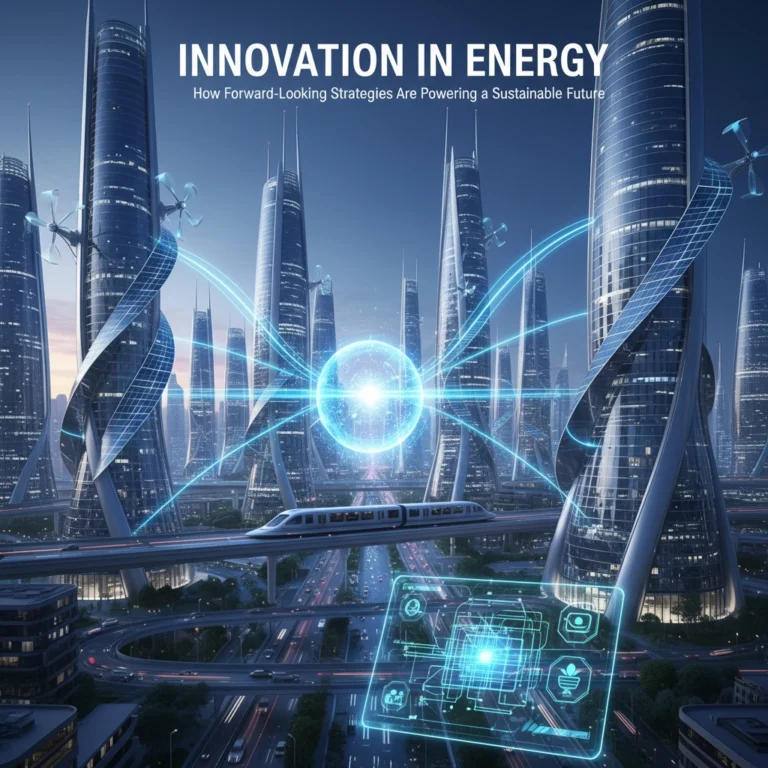Solar vs Hydrogen vs Zero-Point Energy: Which Powers Your Business Future in 2025?
Hey there, business leaders! If you're scratching your head about which energy solution will give your company the biggest bang for its buck in 2025, you're not alone. With all the buzz around renewable energy, it's tough to separate the game-changers from the pipe dreams.
Let's cut through the noise and get real about three energy options everyone's talking about: solar, hydrogen, and zero-point energy. I'll break down what each one actually brings to the table for your business, so you can make a smart decision that won't leave you high and dry (or broke).
Solar Energy: The Reliable Heavy Hitter
Solar isn't just trendy anymore – it's become the workhorse of renewable energy. And honestly, the numbers are pretty mind-blowing.
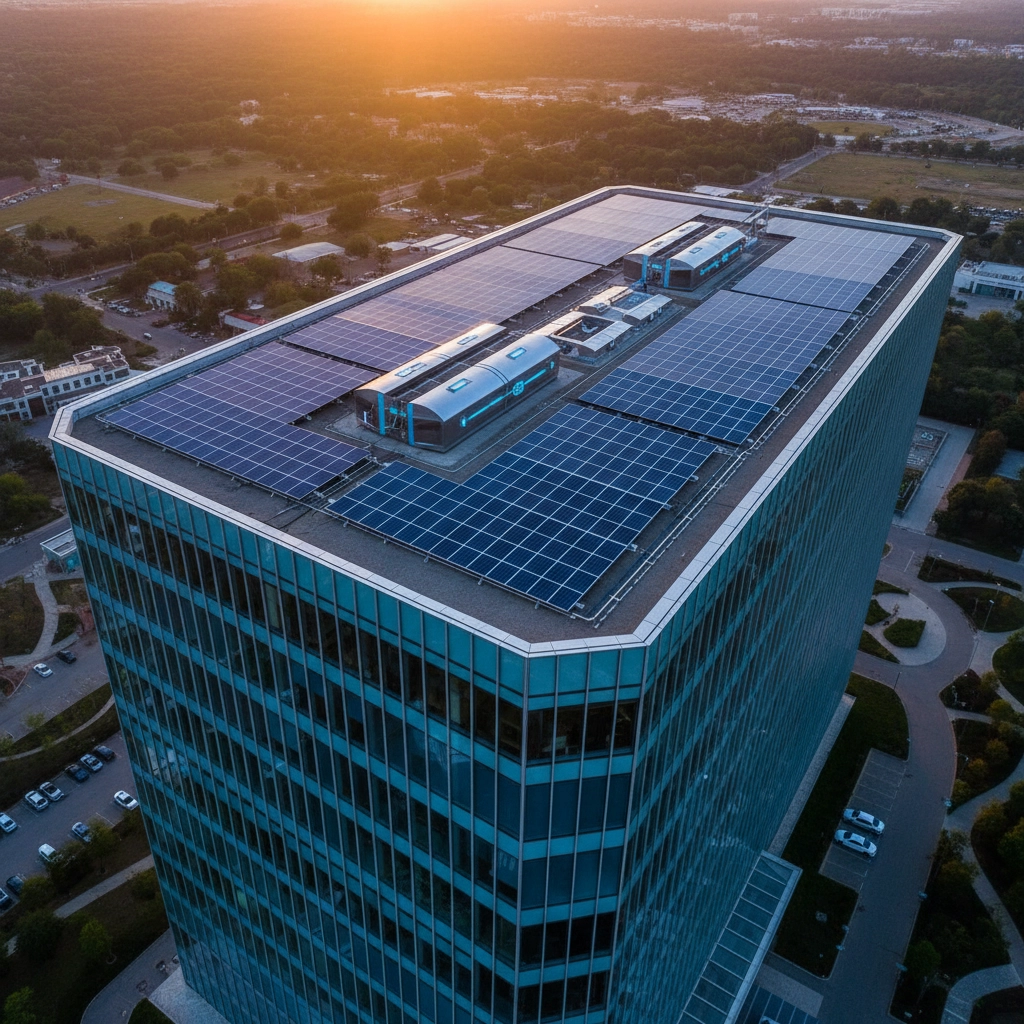
What Makes Solar Tick for Businesses
Solar has hit its stride in a big way. Since 2010, solar electricity costs have plummeted by a whopping 82%. That's not a typo – we're talking about massive cost reductions that make solar the most affordable renewable energy source available today.
Here's what's getting business owners excited: the U.S. is set to add 32.5 gigawatts of solar capacity in 2025 alone. That's like adding dozens of power plants worth of clean energy. Why? Because companies are seeing solid returns on their solar investments, typically paying back their initial costs within 8-10 years.
The Business Benefits That Actually Matter
- Predictable energy costs: No more sweating over volatile fossil fuel prices
- Government incentives: Tax credits and rebates that sweeten the deal
- Multiple revenue streams: You can pair solar with battery storage, EV charging stations, and energy efficiency upgrades
- Immediate implementation: The infrastructure and supply chains already exist
The Real Talk on Solar Downsides
Let's be honest – solar isn't perfect. You're looking at significant upfront costs, anywhere from hundreds of thousands to millions depending on your operation size. Plus, you need adequate roof space or land, and weather can affect production.
But here's the thing: 91% of newly commissioned renewable projects are delivering electricity at lower costs than fossil fuels. That's a trend that's hard to ignore.
Hydrogen Energy: The Promising Newcomer
Hydrogen is like that promising rookie everyone's keeping an eye on – lots of potential, but still proving itself in the big leagues.

Hydrogen's Big Selling Points
Green hydrogen (produced using renewable energy) offers some compelling advantages for certain businesses. It's incredibly versatile – you can use it for industrial processes, transportation fuel, and long-term energy storage. Unlike batteries, hydrogen can store energy for months without degradation.
For heavy industries that need consistent, high-energy processes, hydrogen could be a game-changer. Think steel production, chemical manufacturing, or long-haul transportation where batteries just don't cut it.
Where Hydrogen Gets Tricky
Here's where things get real: hydrogen infrastructure is still in its infancy. Production costs remain high, and the energy-intensive manufacturing process means you need a lot of renewable energy just to make the hydrogen in the first place.
Storage and transportation require specialized equipment and expertise that most businesses don't have. Plus, proven business models for hydrogen are still limited compared to solar's established track record.
The Hydrogen Reality Check
While hydrogen shows promise for specific industrial applications, it's not ready for widespread business adoption in 2025. The technology and infrastructure need more time to mature and costs need to come down significantly.
Zero-Point Energy: The Science Fiction Fantasy
Now, let's talk about zero-point energy – and why you should probably stop talking about it as a business energy solution.

What Zero-Point Energy Actually Is
Zero-point energy refers to a quantum mechanical concept – the residual energy that remains in a system even at absolute zero temperature. Some folks get excited about this because, theoretically, there's energy in "empty" space.
The Harsh Reality
Here's the bottom line: zero-point energy cannot be commercially harnessed with current or foreseeable technology. Despite what you might see in some questionable marketing materials, it remains purely theoretical for energy generation purposes.
Any business considering zero-point energy as an actual energy solution is essentially planning to run their operations on science fiction. There's no commercial viability, no infrastructure, no proven technology, and no path forward.
The Head-to-Head Comparison
Let's put these three options side by side and see how they actually stack up for business use:
| Factor | Solar Energy | Hydrogen Energy | Zero-Point Energy |
|---|---|---|---|
| Commercial Readiness | Fully operational today | Limited/Emerging | Not viable |
| Cost Effectiveness | Most affordable renewable | High production costs | N/A |
| Infrastructure | Well-established | Still developing | Non-existent |
| Payback Period | 8-10 years | Uncertain/Long | Impossible |
| 2025 Growth Projection | 32.5 GW capacity addition | Early adoption phase | None |
| Government Support | Tax credits available | Some pilot programs | None |
| Revenue Opportunities | Multiple streams | Limited options | Zero |
Making the Smart Business Decision
If you're looking to power your business's future in 2025, the choice is pretty clear: solar energy is your best bet.
Why Solar Wins for Most Businesses
Solar offers the perfect combination of proven technology, financial benefits, and immediate availability. With the renewable energy sector racing to fill the growing gap between supply and demand for clean energy, businesses that adopt solar now will gain significant competitive advantages.
The 8% year-over-year increase in new solar capacity isn't just a trend – it's a fundamental shift in how smart businesses approach energy costs and sustainability.
Your Action Plan for 2025
- Assess your energy needs: Calculate your current energy costs and usage patterns
- Explore solar options: Check out solar solutions that fit your business model
- Take advantage of incentives: Government tax credits and rebates can significantly improve your ROI
- Consider additional revenue streams: Battery storage, EV charging, and energy efficiency upgrades can maximize your investment
The Hydrogen Consideration
If you're in heavy industry with specific high-energy needs, keep an eye on hydrogen developments for future consideration. But don't wait for hydrogen to mature if solar can meet your needs now.
The Zero-Point Reality
Simply put: don't consider zero-point energy as a business option. Focus your time and resources on proven technologies that can actually power your operations and improve your bottom line.
The Bottom Line
In 2025's energy landscape, solar energy stands out as the clear winner for most businesses. It's reliable, cost-effective, and available right now. While hydrogen shows promise for specific applications down the road, and zero-point energy remains in the realm of theoretical physics, solar offers the proven path to energy independence and cost savings.
The renewable energy revolution is happening whether you join it or not. The smart money – literally – is on solar energy to power business success in 2025 and beyond. Ready to explore how solar can transform your energy costs? Let's talk about making 2025 the year your business takes control of its energy future.

